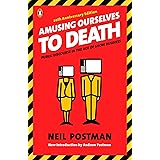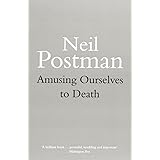
Enjoy fast, free delivery, exclusive deals, and award-winning movies & TV shows with Prime
Try Prime
and start saving today with fast, free delivery
Amazon Prime includes:
Fast, FREE Delivery is available to Prime members. To join, select "Try Amazon Prime and start saving today with Fast, FREE Delivery" below the Add to Cart button.
Amazon Prime members enjoy:- Cardmembers earn 5% Back at Amazon.com with a Prime Credit Card.
- Unlimited Free Two-Day Delivery
- Streaming of thousands of movies and TV shows with limited ads on Prime Video.
- A Kindle book to borrow for free each month - with no due dates
- Listen to over 2 million songs and hundreds of playlists
- Unlimited photo storage with anywhere access
Important: Your credit card will NOT be charged when you start your free trial or if you cancel during the trial period. If you're happy with Amazon Prime, do nothing. At the end of the free trial, your membership will automatically upgrade to a monthly membership.
Buy new:
$16.00$16.00
Ships from: Amazon.com Sold by: Amazon.com
Save with Used - Good
$8.74$8.74
Ships from: Amazon Sold by: Jenson Books Inc





Download the free Kindle app and start reading Kindle books instantly on your smartphone, tablet, or computer - no Kindle device required.
Read instantly on your browser with Kindle for Web.
Using your mobile phone camera - scan the code below and download the Kindle app.

OK
 Audible sample Sample
Audible sample Sample 


The Disappearance of Childhood Paperback – August 2, 1994
Purchase options and add-ons
Deftly marshaling a vast array of historical and demographic research, Neil Postman, author of Technopoly, suggests that childhood is a relatively recent invention, which came into being as the new medium of print imposed divisions between children and adults. But now these divisions are eroding under the barrage of television, which turns the adult secrets of sex and violence into popular entertainment and pitches both news and advertising at the intellectual level of ten-year-olds.
Informative, alarming, and aphorisitc, The Disappearance of Childhood is a triumph of history and prophecy.
- Print length177 pages
- LanguageEnglish
- PublisherVintage/Random House
- Publication dateAugust 2, 1994
- Dimensions5.2 x 0.5 x 7.9 inches
- ISBN-100679751661
- ISBN-13978-0679751663
Books with Buzz
Discover the latest buzz-worthy books, from mysteries and romance to humor and nonfiction. Explore more
Frequently bought together

Similar items that may ship from close to you
Editorial Reviews
From Publishers Weekly
Copyright 1994 Reed Business Information, Inc.
Review
--Victor Navasky
From the Publisher
--Victor Navasky
About the Author
Product details
- Publisher : Vintage/Random House (August 2, 1994)
- Language : English
- Paperback : 177 pages
- ISBN-10 : 0679751661
- ISBN-13 : 978-0679751663
- Item Weight : 5.6 ounces
- Dimensions : 5.2 x 0.5 x 7.9 inches
- Best Sellers Rank: #85,871 in Books (See Top 100 in Books)
- Customer Reviews:
About the author

Neil Postman was chairman of the department of communication arts at New York University. He passed away in 2003.
Customer reviews
Customer Reviews, including Product Star Ratings help customers to learn more about the product and decide whether it is the right product for them.
To calculate the overall star rating and percentage breakdown by star, we don’t use a simple average. Instead, our system considers things like how recent a review is and if the reviewer bought the item on Amazon. It also analyzed reviews to verify trustworthiness.
Learn more how customers reviews work on Amazon-
Top reviews
Top reviews from the United States
There was a problem filtering reviews right now. Please try again later.
An enjoyable, though troubling book to read, my favourite bits come earlier in the book where we find that childhood needs shame in order to be defiend. That shame is of adult things, and therefore, childhood is codefied by shame because the seperation then occurs, with adults needing to protect children. Is this shame then hidden in literature?
I'd go on, but you must simply raed through it yourself. I found it fascinating... and, as I've said before, troubling. This was written in the mid eighties, but this fact does not make it irrelevent. The apst twenty-some years may only provide more confirmation of Neil Postman's thesis.
A great book.
This is a very disturbing book, and what exasperates things is that the author seems to be right. It is easier to agree with this book today that it was when it was first published because many things that the author mentions have actually became true. The author describes how the idea of childhood first came about and shows that it was a necessary step in the evolution of man as a social animal. The author then goes on to tell the reader how this necessary idea is now disappearing. Children and adults dress the same way, they speak the same way and most importantly they have access to the same information. Ever parent should read this book to be aware of what too much information might do to children. I know that a lot of people might not agree with the main premises of the book, but I am sure that most parents will relate to it.
Top reviews from other countries
Now with generations being conditioned through moving pictures, childhood is disappearing, because a picture reveals all the secrets in an instant, no literacy is needed. And when we look at present society, we can see that Postmann was right; similar clothing, similar pass-times and it is difficult to evaluate if the children become faster grown-ups or if the adults regress into childishness.













